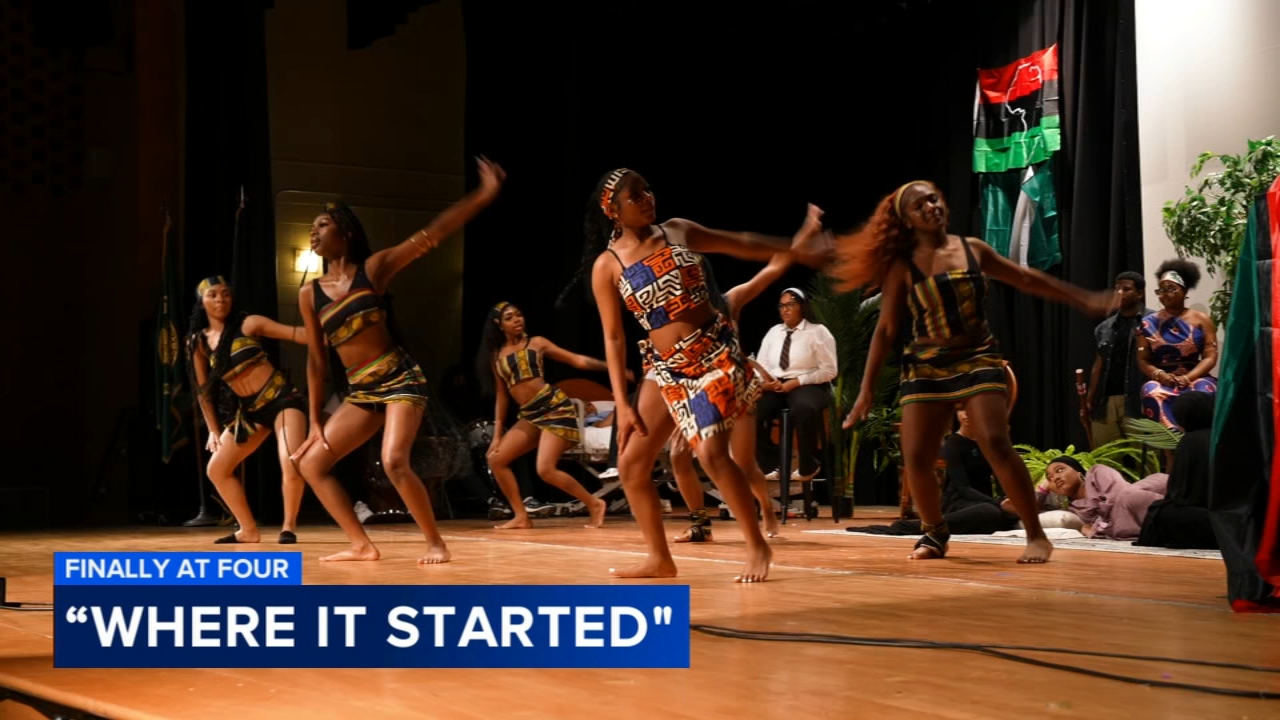Program works with Philadelphia teens to diversify nursing
The program at Temple focuses specifically on students of color living in and around North Philadelphia.

PHILADELPHIA (WPVI) -- Inside room 105 of the pharmacy building on Temple University's campus, there's the sound of a child crying. Only it's not a real child. It's a robotic-like mannequin on a hospital bed. And it's up to freshman nursing student Saniya Moore and her classmate Sakeesha Similien to figure out what's wrong with the "child."
"At first, it's a little scary because they actually breathe, like you can feel a pulse," Moore said of the mannequin child.
It's just part of the students' training as they learn how to be effective nurses. It's something Moore decided she wanted to do in high school.
"I'm the oldest of like 10 grandchildren, so I've been watching kids my whole life, around kids my whole life, so I knew I wanted to work with them," said the 19-year-old.
Moore and Similien are the freshman class of scholarship recipients in the Healthcare Scholars Pipeline Program, a partnership between Temple University and Independence Blue Cross.
"We're taking these students and training them to participate and give back to their community," said Dr. Jennifer Brown, who is an assistant professor in the Temple University Nursing Department and program leader of the Healthcare Scholars Pipeline Program.
Independence Blue Cross provided a $750,000 grant to start the program, which was first announced in 2021. It provides full scholarships, mentoring and supportive resources to students they hope will change the face of nursing, in which, locally, Black people are under-represented.
"It doesn't mean there aren't nurses of color out there, but there need to be more," said Lorina Marshall-Blake, president of the Independence Blue Cross Foundation.
The 6abc data team found that 66% of Philadelphia hospital and ambulatory health care workers are white. That's nearly double the city's white population. While Black people make up more than 40% of Philadelphia's population, they only make up roughly 15% of healthcare workers in that field, according to the latest data available (2021) from the Equal Employment Opportunity Commission.
"The important thing is not just for them but for the healthcare system as a whole. Number one, it's going to increase trust," said Brown.
The program at Temple focuses specifically on students of color living in and around North Philadelphia, an area that is economically disadvantaged and is home to the Temple University campus.
Similien grew up in Northeast Philadelphia. She's looking forward to being able to use her nursing skills in her community.
"I'll be able to advocate for other Black people in health care so that when you're in a time of pain, you don't have to add on to that by having to fight for yourself," said Similien.
She notes a study that shows Black women have a higher maternal mortality rate, which can be associated with healthcare workers not taking Black patients' complaints of pain or discomfort seriously.
The Healthcare Scholars Pipeline Program continues to expand. Officials with Independence Blue Cross say the program will soon be in 14 other nursing schools in our area.
The Healthcare Scholars Program students start their journey in high school with workshops and programs that expose them to the nursing field. That exposure also involves partnering with high schools to make sure students who are interested in nursing take the proper curriculum so that they become good applicants to college nursing programs. Once participants graduate from the Temple program, they're guaranteed two years of employment with Temple University Hospital.
"They can literally walk right out of here and have a job," said Marshall-Blake. "There's the path!"
It's a path that Moore knows will lead to better outcomes for her and her future patients.
"I'm excited for the journey ahead of me," she said.











